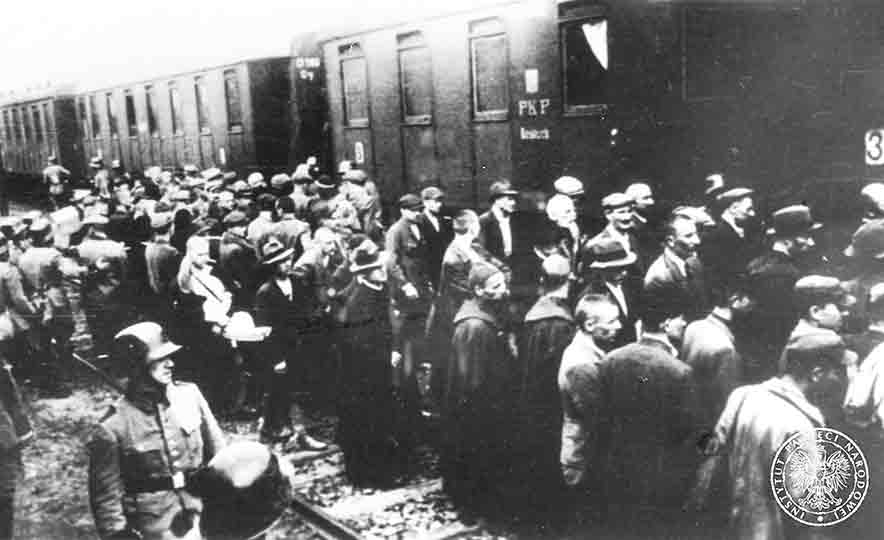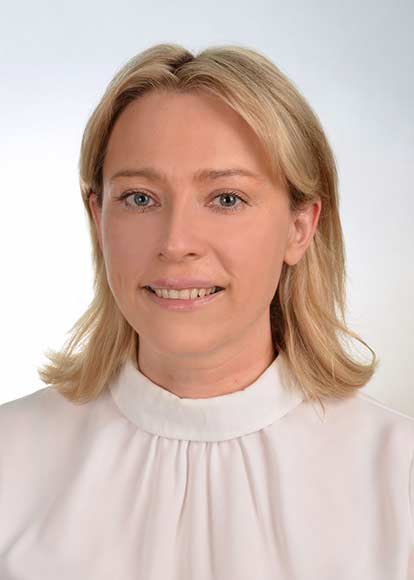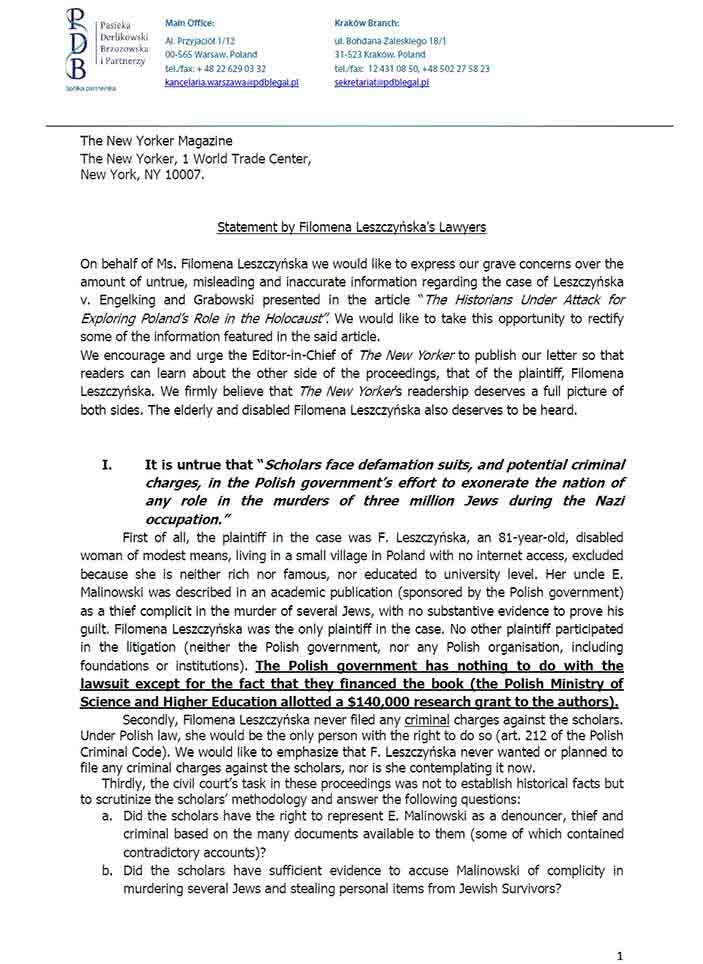This is just an introduction. Read the letter here:
Statement by Filomena Leszczyńska’s Lawyers — A Letter to the New Yorker Magazine
National identity is one of the fundamental human rights. In the recent frenzy of various old and newly formed identity claims, this fundamental right of some is increasingly being compromised and trampled upon to make room for new demands of others. Polish Americans have often been at the receiving end of being attacked and their national dignity compromised. Poland slowly emerges from behind the curtain of colonialism, poverty, and neglect, which closed shut after 1945. The issue of Polish national rights and the rights of American Polonia to their historic identity needs to reach the mainstream media with due attention and respect.

The first transport of Polish prisoners to KL Auschwitz, Tarnów, 14 June 1940 (Source: Wikipedia)
Dr. Monika Pasieka-Brzozowska, Esq. and her husband Jerzy Pasieka, Esq., run a successful legal practice in Krakow and Warsaw, Poland. For Monika and Jerzy, giving back to the community is what they have been brought up to do. As lawyers, they have been contributing expertise, time, and treasure to help pro bono in numerous cases of the infringement of the right to national identity and national dignity. The cases mostly involved German manipulations attempting to shift some of the responsibility for World War II on Poland.
The case of Ms. Filomena Leszczyńska is the most recent of their engagements. “We took a trip to a remote village in Poland,” says Jerzy. “What we saw there moved us deeply. We were welcomed by an over 80-year-old lady with no cell phone or the Internet, which is quite a rarity in modern Poland, where the Internet and cell phone service is generally superior to that in the United States. Ms. Filomena was devastated hearing that someone would slander the good name of her uncle and call it a scientific research. Family honor and the pride in her national identity are at the core of Ms. Filomena’s upbringing. If we lose our basic dignity, what else do we have left?”
Dr. Monika Pasieka-Brzozowska, Esq. is an expert on human rights issues for lawyers on the Council of Europe and is quite versed on the juris prudence of the Court of Human Rights. Ms. Filomena Leszczyńska had a strong case against Jan Grabowski and Barbara Engelking who accused her uncle of collaborating with the Germans in the extermination of Poles who happened to be Jewish. The truth is that Edward Malinowski not only did not participate in any anti-Jewish actions but was actively protecting his Jewish neighbors. The case was a pro bono civil proceeding on behalf of Ms. Filomena Leszczyńska, who tried to defend the good name of her uncle Edward Malinowski.
The case was not an attack on the Holocaust studies in Poland. The authors of the slanderous accusations received a substantial stipend from the Polish Ministry of Culture in the amount of $137,000 for their research, and their book Dalej jest Noc. Losy Żydów w wybranych powiatach w Polsce (The Night Endures. The lives of Jews in selected Polish counties, 2018) is widely available both in Polish and English. As the reaction to the court's decision, The New Yorker Magazine published an article attacking the verdict, but did not bother to contact Ms. Filomena or her attorney when preparing to publish their article defending the researchers. What is even more troubling, they did not respond to the letter by Dr. Monika Pasieka-Brzozowska, Esq.
In the case, the lawyers did not even argue the innocence or guilt of Mr. Edward Malinowski but rather whether the scientists working on the case exercised due diligence and caution. They proved that the authors withheld evidence that exonerated Mr. Malinowski and presented only second source slanderous allegations against him. The legal opinion of the plaintiffs was supported by the court verdict.
KURYER has been trying to avoid emotional and divisive issues trying to maintain its focus as a global platform of connectivity that builds bridges rather than antagonizes and divides. We have decided, however, that in the name of a free and open debate, we will publish Dr. Pasieka-Brzozowska’s letter, which the New Yorker decided to ignore.
Read the letter here:
Statement by Filomena Leszczyńska’s Lawyers — A Letter to the New Yorker Magazine
Press conference by attorney Monika Brzozowska Pasieka and attorney Jerzy Pasieka on the case of Filomena Leszczyńska's lawsuit against J. Grabowski and B. Engelking.





